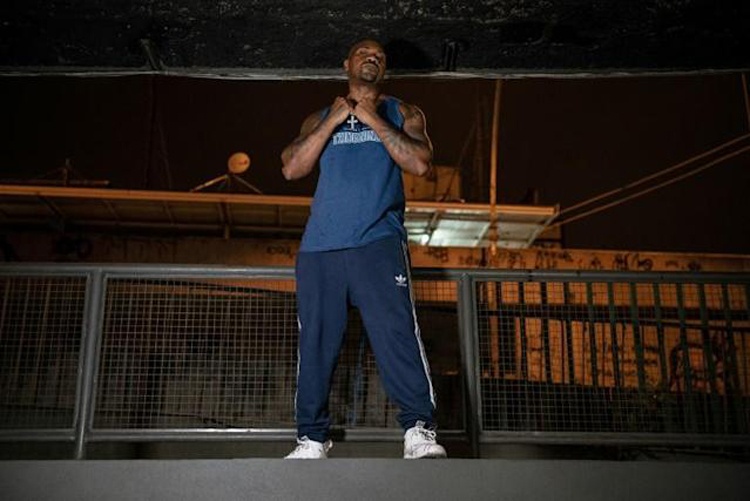 Brazilian rapper MV Bill poses for pictures in Rio de Janeiro, who told AFP the pandemic has been on hard on him as an artist: "I am dependent on my fans". - AFP
Brazilian rapper MV Bill poses for pictures in Rio de Janeiro, who told AFP the pandemic has been on hard on him as an artist: "I am dependent on my fans". - AFPBrazilian rapper MV Bill's new album is both fresh and old-school, full of rhymes on 2021 politics and the pandemic, but also the same problems he has been chronicling in the favelas for 33 years. At 47, Alex Pereira Barbosa-his real name-has earned the right to call himself a veteran of Brazilian rap since his 1988 debut as a teenage hopeful straight out of City of God, the Rio de Janeiro slum made famous in the film of the same name (2002). In some ways, a lot has changed since then: the kid from the neighborhood has achieved fame and acclaim not only as a rapper but an actor, TV presenter, writer, producer and documentary filmmaker.
In other ways, nothing has: the artist continues to live up to his stage name-the MV stands for "Mensageiro da Verdade," or "Messenger of Truth," a nickname he was given by friends-with pointed lyrics on the poverty, violence, corruption and lack of opportunity that still harrow Brazil's favelas as much as ever. His new album, "Voando Baixo," or "Flying Low," depicts a Brazil suffering from the twin ills of the pandemic-which has hit the country hard, and poor Brazilians hardest-and a broken political system.
His songs are bluntly critical of President Jair Bolsonaro, the far-right leader whose Covid-19 denialism, opponents say, has only fueled Brazil's soaring death toll-more than 435,000, second only to the United States. "We are cockroaches to this insecticide government," he raps on one track. But the roots of poor, black Brazilians' problems go way further back, he says. "No president in Brazilian history has managed to address the favelas' problems-shoddy housing, violence, corrupt police, poor medical care, broken schools," he told AFP in an interview. "I have songs from 1999 that were already talking about these things."
A veteran hits TikTok
MV Bill's music is inseparable from his activism. He has participated in decades of social projects aimed at making life better in places like City of God, and is a co-founder of the Central Unica das Favelas (CUFA), a charitable organization and advocacy group for the favelas. He rose to international fame in 2006 with his award-winning documentary "Falcao-Meninos do Trafico," which followed 16 promising favela kids trying-and ultimately failing-to escape the violence of drug trafficking. His music has much the same grass-roots approach as his activism. He independently funds and produces his own albums.
That has gotten trickier during the pandemic, since, like artists the world over, he has been forced to give up live performances. "I'm dependent on my fans," he said. With no concert revenue, he has turned to digital platforms "to survive, pay the bills and reinvest in new music," he said. He has more than one million monthly listeners on Spotify, and is a sensation on TikTok, where his songs feature in hundreds of videos. "That's helped my music reach a much younger audience," he said.
Feet on the ground
His new album is also a comment on dominant trends in contemporary hip-hop, with its bling, degrading treatment of women and near-total absence of politics. "Flying Low," he said, is meant to provide a counter-point to the idea of "flying high:" the wealth-worshipping aesthetic of many recent rap albums. "So much of rap today is about money, ostentation, objectifying women, material things, pot, alcohol," he said. "Hip hop is a lot more than that... It's legitimate for young people to want to fly high. Flying means having dreams. But you can take off and still keep your feet on the ground." - AFP










